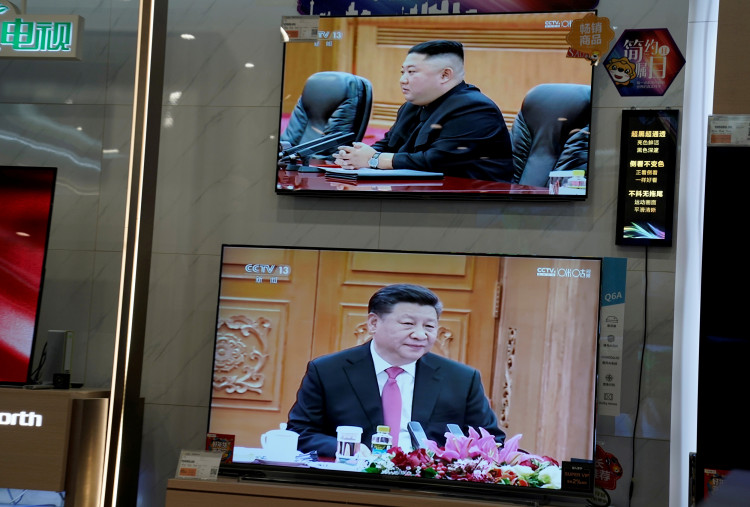The issue of China's ability to restrain its longtime friend has taken on a special urgency as North Korea increases the number of nuclear weapons in its arsenal and the missiles it will use to launch them over Asia and at the U.S.
The latest in a string of missile tests that have sparked concerns that the isolated nation is set to test a nuclear weapon for the first time since 2017 took place on Friday (Nov. 18) last week, just as leaders of the Asia-Pacific Economic Cooperation conference were gathering in Bangkok.
Last week, US President Joe Biden asked his Chinese counterpart, Xi Jinping, if he might try to talk North Korea out of another nuclear test, but he admitted that he didn't know if China had the means to do so.
With tensions between the U.S. and China boiling, particularly over Taiwan, the question may not be whether China has the power to influence North Korean behavior, but to what extent it is in China's interests to subdue a neighbor it has long considered as a valuable buffer to the U.S.
"From China's ... perspective, North Korea can serve as a force multiplier to challenge America's position in the Pacific," Craig Singleton, a former U.S. government official told Reuters. "Simply put, the more countries willing to challenge or complicate the US-led security order in the Indo-Pacific, the better."
According to a senior member of the U.S. administration, the U.S. often communicates with China in the hopes that China can help convince North Korea to cease unsettling the region with nuclear demonstrations.
"We do think that Beijing has a role to play," the U.S. official said. "It will definitely be part of our diplomacy to try to get China to ... use its influence."
Even before North Korea launched its missile on Friday, Biden told Xi at last week's G20 summit in Indonesia that the North's pursuit of nuclear weapons would result in a greater US military presence in the area.
The likelihood of an expanded U.S. military presence raises other objectives for China, according to Jenny Town of 38 North, a Washington-based North Korea initiative. China does not want to see a nuclear-armed North Korea or U.S. nuclear weapons in the region.
"What is China going to do?" John Delury, professor of Chinese studies at Yonsei University in Seoul, said. "Sanction North Korea, which cut itself off from the world for three years because of COVID-19 and continued testing missiles? The whole point is China doesn't control North Korea."
Still, China's foreign ministry acknowledged North Korea's "reasonable concerns" and urged a "balanced solution" in line with what it refers to as a "two-track approach" of advancing denuclearization and putting in place a peace framework on the Korean peninsula.
"If North Korea has an inherent technical need to do the test, then I don't think China has real leverage to stop those activities," Tong Zhao, a visiting research scholar at Princeton University's School of Public and International Affairs, said. "The most China may be able to do is to delay those tests."





